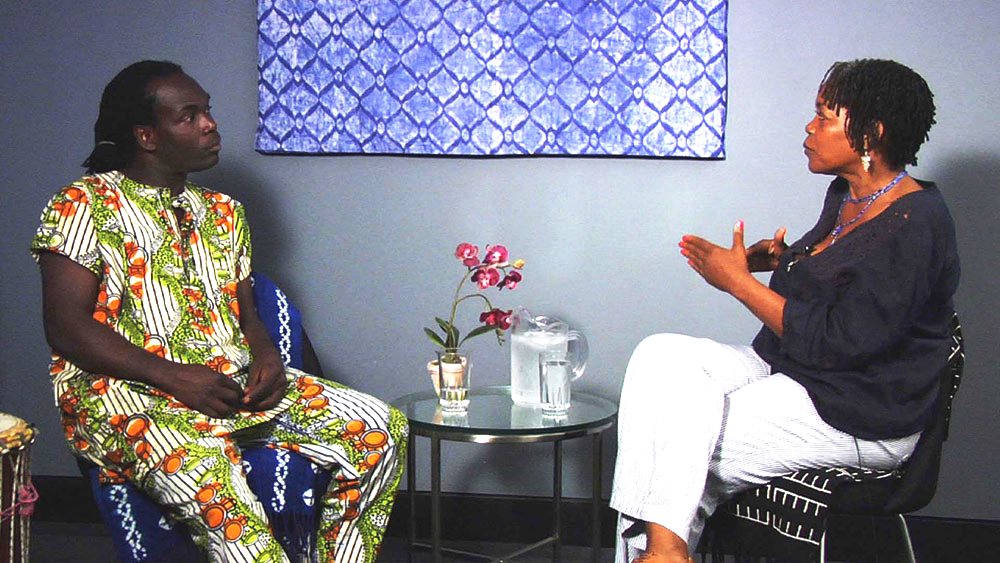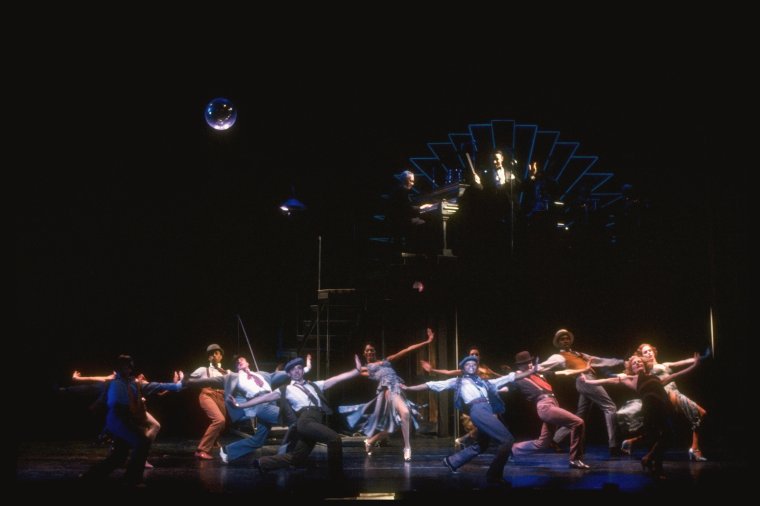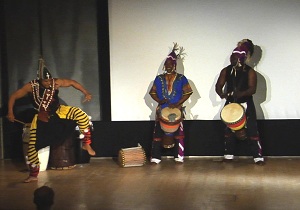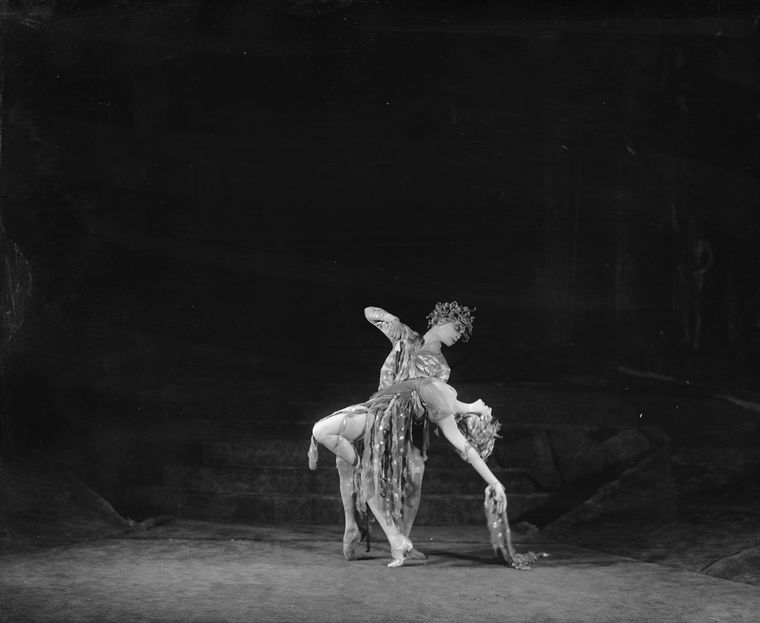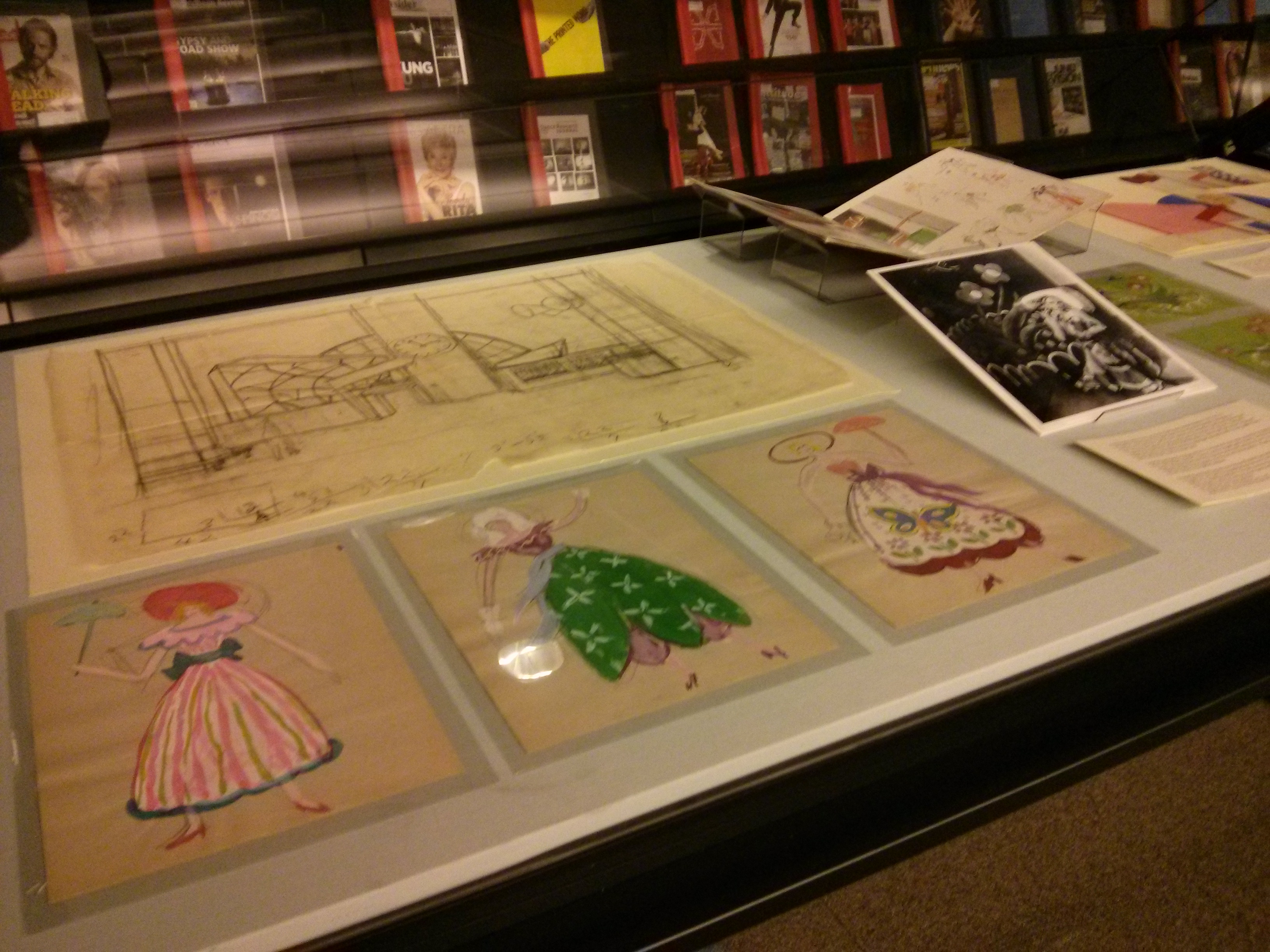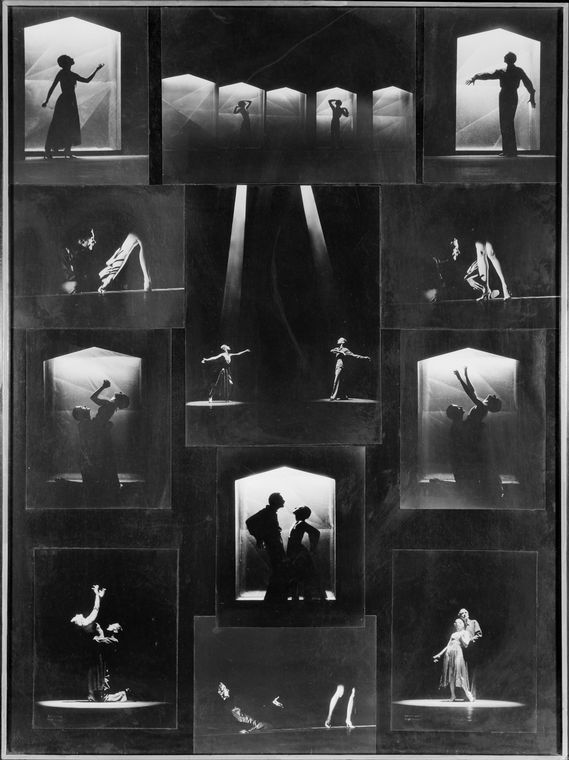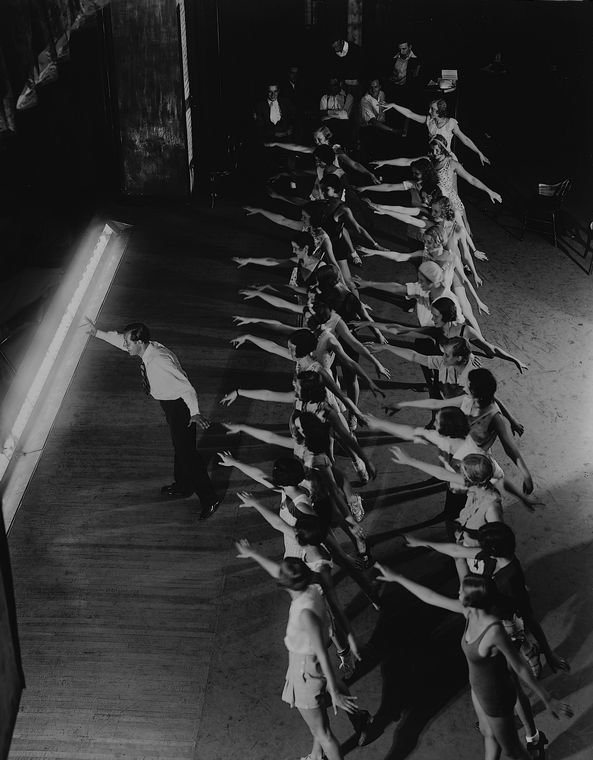Time Machine: Interstitial Moment, Video Stockholm Syndrome
by Francis Dougherty, Barbara Goldsmith Preservation Division
April 14, 2015
There is so much history wound up in these open reels that would not exist in any other form. The medium became available at a rich time in Dance history.
African Dance Interview Project Videos Now Available
by Jan Schmidt, Curator, Jerome Robbins Dance Division, New York Public Library for the Performing Arts, Dorothy and Lewis B. Cullman Center
March 18, 2015
The Jerome Robbins Dance Division is pleased to announce that the five interviews documented with the Mertz Gilmore Foundation grant to record African choreographers and teachers are now online at The New York Public Library’s website.
Juana Vargas "La Macarrona:" A Flamenco Treasure
by K. Meira Goldberg
January 21, 2015
The footage of Juana Vargas "La Macarrona" (1870-1947), filmed in 1917 by Léonide Massine and held in the Jerome Robbins Dance Division at the Library for the Performing Arts, is one of the Library's most important, and little-known, flamenco treasures. As a member of the Wertheim study, I was honored to be invited to write a blog post about the Library's significant holdings related to flamenco.
Jerome Robbins Dance Division Annual Report FY14 Available
by Jan Schmidt, Curator, Jerome Robbins Dance Division, New York Public Library for the Performing Arts, Dorothy and Lewis B. Cullman Center
January 21, 2015
The Dance Division has continued its work, assuring its place in the world, as a global, international archive, the world's largest of its kind dedicated to dance, by collecting, preserving and making accessible materials about the many varieties of dance in the world.
Happy Halloween to The Count
by Barbara Cohen-Stratyner
October 31, 2014
But the Muppet most closely associated with numbers is, of course, the Count. The Count who loves to count.
Dance Your Way Through Fall
by Arlene Yu, Jerome Robbins Dance Division, New York Public Library for the Performing Arts, Dorothy and Lewis B. Cullman Center
September 17, 2014
Summer is almost formally over and our fall work is already in full swing. There are a plethora of events at the New York Public Library revolving around dance to take you through the end of the year, including a conversation with choreographer and MacArthur Foundation Fellow Alexei Ratmansky and new Saturday brunch events at the Library for the Performing Arts! Get them on your calendar now!
Traditional Dance of Mexico Photographs on Display at LPA
by Danielle Castronovo, Assistant Curator, Jerome Robbins Dance Division, New York Public Library for the Performing Arts, Dorothy and Lewis B. Cullman Center
September 17, 2014
The photographs of MEXICO PROFUNDO “LIGHT AND SHADOWS” are a new acquisition of the Jerome Robbins Dance Division of the New York Public Library. A selection of the photographs are currently on view in the third floor reading room of the Library for Performing Arts.
Big Deal: Researching Bob Fosse at the Library
by Kevin Winkler
June 12, 2014
The life and career of Fosse, the only director to win the triple crown of show business awards in one year (an Oscar for Cabaret, a Tony Award for Pippin, and an Emmy Award for Liza With a Z—all in 1973) is well-documented through the holdings of The New York Public Library for the Performing Arts (LPA) and elsewhere. Clippings, reviews, posters and lobby cards, Playbills and programs—all the standard theatrical ephemera—on Fosse's shows and films are easily available in the Billy Rose Theatre Division and Jerome Robbins Dance Division.
Time Machine: Interstitial Moment, Real News for Time Travelers
by Francis Dougherty, Barbara Goldsmith Preservation Division
May 19, 2014
With all of my past allusions to time travel, the fictional trope, I thought it was time that I accounted for my flippancy with some hard time travel news.
Time Machine: Redacted by Time
by Francis Dougherty, Barbara Goldsmith Preservation Division
May 6, 2014
One of my colleagues, speaking of our collection of unique recordings at the Library for the Performing Arts, has said that, “all of our recordings are made by professionals, but recording was not their profession.” These recordists are authors, dancers, actors, musicians, vocalists, and choreographers to name a few. What they share is a need to create a record that can document works that take place in time and space.
Jerome Robbins Dance Division Annual Report FY 2013 Now Available
by Jan Schmidt, Curator, Jerome Robbins Dance Division, New York Public Library for the Performing Arts, Dorothy and Lewis B. Cullman Center
April 1, 2014
The Jerome Robbins Dance Division’s latest Annual Report FY 2013 is now online on the Library’s website documenting another full and active year for the Dance Division. The number of public programs produced by the Dance Division this year was exceptional and included three Flamenco programs, three African programs with Robert Farris Thompson, Ronald K. Brown/Evidence and Djoniba Mouflet, and the program with Princess Norodom Buppha Devi in conversation with Peter Sellars.
Florence Vandamm: Dance Photographer?
by Barbara Cohen-Stratyner
March 26, 2014
The representation of the professional and artistic career of Florence Vandamm has a major gap, which we are doing our best to fill in. Her London scrapbook goes from 1908–1915. The Vandamm Theatrical Photographs collection documents her work in New York City, from 1924 on. We have filled in some of the gap with the Sybil Thorndike material (see earlier posts) and discoveries of images printed in magazines, such as British and New York Vogue, Vanity Fair and The Spur.
Oscar Nomination for Foreign Film of The Missing Picture, Directed by Rithy Panh
by Jan Schmidt, Curator, Jerome Robbins Dance Division, New York Public Library for the Performing Arts, Dorothy and Lewis B. Cullman Center
March 4, 2014
The Dance Division wishes to express our great joy for the Oscar nomination in the category of Foreign Film for The Missing Picture, directed by Rithy Panh. "This haunting, at times shocking movie—part memoir, part indictment—fills the void suggested by its title. With extraordinary grace, Rithy Panhs tells his story and that of his ravaged country," wrote Mahnola Dargis in The New York Times, September 26, 2013.
A Philadelphia Collaboration: The Pinto Brothers' Designs for Catherine Littlefield’s Philadelphia Ballet Company
by Danielle Castronovo, Assistant Curator, Jerome Robbins Dance Division, New York Public Library for the Performing Arts, Dorothy and Lewis B. Cullman Center
February 26, 2014
A Philadelphia Collaboration: The Pinto Brothers’ Designs for Catherine Littlefield’s Philadelphia Ballet Company, a newly installed exhibit in Jerome Robbins Dance Division, features a variety of drawings, costume sketches and set designs by Salvatore (1905-66) and Angelo (1908-94) Pinto commissioned by Catherine Littlefield (1905-51) for the Philadelphia Ballet Company’s productions of Barn Dance and Terminal.
Lincoln Kirstein's Greatest Treasure Hunt and Find
by Shelly Smith
February 18, 2014
The Monuments Men was one of the top films again last week, bringing to light the incredible true story of the museum professionals (art historians, curators, professors, conservators) who joined the Allied army's Monuments, Fine Arts, and Archives program (MFAA), risking their lives to rescue art from thievery and bombing during World War II.
The Holy Grail of the Percussion World, Part 1
by Barbara Cohen-Stratyner
February 4, 2014
William F. Ludwig himself put it best when he said, “On February 9th, 1964, a new musical event burst from the TV screens across America. The Beatles had arrived, featuring Ringo Starr and his Ludwig Black Oyster drums. Literally overnight everyone wanted a drum set like Ringo’s. The drum boom was born!”
Memorial for Jean Léon Destiné at 92nd Street Y
by Jan Schmidt, Curator, Jerome Robbins Dance Division, New York Public Library for the Performing Arts, Dorothy and Lewis B. Cullman Center
January 17, 2014
A memorial is being held for Jean Léon Destiné, master Haitian dancer, choreographer and drummer, who passed on January 22, 2013. This will be at the 92nd Street Y on January 24, 2014, during their program Fridays at Noon: The Legacy of Jean-Léon Destiné.
Khmer Dance Project Videos Available Online
by Jan Schmidt, Curator, Jerome Robbins Dance Division, New York Public Library for the Performing Arts, Dorothy and Lewis B. Cullman Center
December 11, 2013
One of the stunning new collections from the Jerome Robbins Dance Division now available in the Library’s Digital Collections is the Khmer Dance Project (KDP). Funded by a grant from the Anne Hendricks Bass Foundation, the KDP began in 2008 when the Center for Khmer Studies partnered with the Jerome Robbins Dance Division to interview and film the three generations of artists - including dancers, musicians and singers, as well as embroiderers and dressers - who kept dance alive during and in the wake of the Khmer Rouge regime. The New York Public Library offers streaming video of all
Those Mysterious Shadowy Dancers
by Barbara Cohen-Stratyner
December 9, 2013
This post answers a question about the image that the Library’s web page has been using when it highlights the Vandamm exhibition, Pioneering Poet of Light. I was thrilled when the web editors selected it, since it illustrates the title so well. So, here’s an extended caption, with musical accompaniment.
Three’s a Crowd was a revue, presented in the 1930-1931 season. Like The Band Wagon in last week's post, it was choreographed by the brilliantly innovative Albertina Rasch and paired a young Broadway/vaudeville veteran with a European ballet
"Hey Up There" Looking Down on Dancers
by Barbara Cohen-Stratyner
November 20, 2013
“Hey up there”
Broadway precision chorus lines were a staple of musical comedies and revues. A straight line of precision tappers, kickers or steppers could excite the audience in the orchestra, looking slightly up, or balcony, from which they were looking slightly down. But Broadway-trained Hollywood dance directors were giving audiences a multitude of angled points-of-view thanks to cameras and booms.
In the 1930s, the Vandamms went all out to give
 With your library card, it's easier than ever to choose from more than 300,000 e-books on SimplyE, The New York Public Library's free e-reader app. Gain access to digital resources for all ages, including e-books, audiobooks, databases, and more.
With your library card, it's easier than ever to choose from more than 300,000 e-books on SimplyE, The New York Public Library's free e-reader app. Gain access to digital resources for all ages, including e-books, audiobooks, databases, and more.
